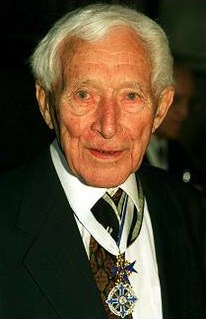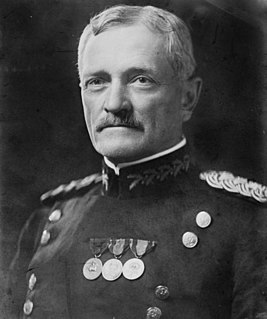A Quote by George Washington
Should any American soldier be so base and infamous as to injure any Canadian or Indian in his person or property, I do most earnestly enjoin you to bring him to such severe and exemplary punishment, as the enormity of the crime may require. Should it extend to death itself, it shall not be disproportioned to its guilt, at such a time and in such a cause.
Related Quotes
He’s bound to have done something,” Nobby repeated. In this he was echoing the Patrician’s view of crime and punishment. If there was a crime, there should be punishment. If the specific criminal should be involved in the punishment process then this was a happy accident, but if not then any criminal would do, and since everyone was undoubtedly guilty of something, the net result was that, in general terms, justice was done.
The (capital punishment) controversy passes the anarch by. For him, the linking of death and punishment is absurd. In this respect, he is closer to the wrongdoer than to the judge, for the high-ranking culprit who is condemned to death is not prepared to acknowledge his sentence as atonement; rather, he sees his guilt in his own inadequacy. Thus, he recognizes himself not as a moral but as a tragic person.
The point I wish to make is that those things cause the soldier to remember that the people at home are behind him. You do not know how much that is going to mean to us who are going abroad. You do not know how much that means to any soldier who is over there carrying the flag for his country. That is the point which should be uppermost in the minds of those who are working for the soldier.
The Constitution should contain a provision that every officer of the Government who should neglect or refuse to extend the protection guaranteed in the Constitution should be subject to capital punishment; and then the president of the United States would not say, "Your cause is just, but I can do nothing for you."
Every subject's duty is the King's; but every subject's soul is his own. Therefore, should every soldier in the wars do as every sick man in his bed, wash every mote out of his conscience; and dying so, death is to him advantage; or not dying, the time was blessedly lost wherein such preparation was gained; and in him that escapes, it were no sin to think that, making God so free an offer, He let him outlive the day to see His greatness and to teach others how they should prepare.
The libertarian sees the State as a giant gang of organized criminals, who live off the theft called "taxation" and use the proceeds to kill, enslave, and generally push people around. Therefore, any property in the hands of the State is in the hands of thieves, and should be liberated as quickly as possible. Any person or group who liberates such property, who confiscates or appropriates it from the State, is performing a virtuous act and a signal service to the cause of liberty.
In what is seen, there should be just the seen; In what is heard, there should be just the heard; In what is sensed, there should be just the sensed; In what is thought, there should be just the thought. He should not kill a living being, nor cause it to be killed, nor should he incite another to kill. Do not injure any being, either strong or weak in the world.
Thirdly, the supreme power cannot take from any man any part of his property without his own consent: for the preservation of property being the end of government, and that for which men enter into society, it necessarily supposes and requires, that the people should have property, without which they must be supposed to lose that, by entering into society, which was the end for which they entered into it; too gross an absurdity for any man to own.
Religion should unite all hearts and cause wars and disputes to vanish from the face of the earth; it should give birth to spirituality, and bring light and life to every soul. If religion becomes a cause of dislike, hatred and division, it would be better to be without it... Any religion which is not a cause of love and unity is no religion.
Anarchism may be described as the doctrine that all the affairs of men should be managed by individuals or voluntary associations, and that the State should be abolished..... Nor does the Anarchistic scheme furnish any code of morals to be imposed upon the individual. "Mind your own business" is its own moral law. Interference with another's business is a crime and the only crime, and as such may properly be resisted.

































